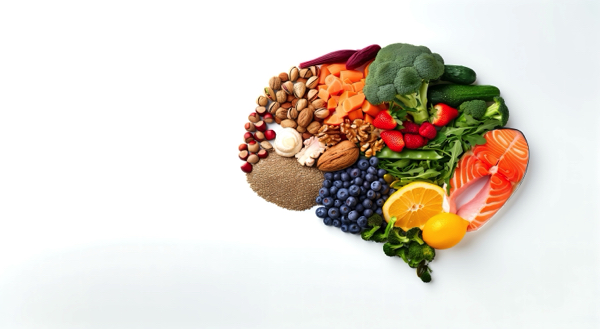These six common artificial sweeteners are now linked to cognitive decline
09/08/2025 / By Lance D Johnson

For decades, artificial sweeteners have been marketed as a guilt-free alternative to sugar—helping people manage weight, control blood sugar, and avoid cavities without sacrificing sweetness. But mounting research suggests these chemical substitutes may come with a hidden cost: accelerated brain aging and cognitive decline. A new study published in Neurology has linked six widely used artificial sweeteners—aspartame, saccharin, acesulfame potassium, erythritol, xylitol, and sorbitol—to troubling declines in memory, language, and thinking skills.
The findings add to a growing body of evidence that these sugar substitutes, found in everything from diet sodas to sugar-free candies, may be silently harming brain health. While scientists are still unraveling the exact mechanisms, previous research suggests these sweeteners contribute to inflammation, blood clotting, and even toxic breakdown products that damage delicate neural pathways. The implications are alarming—especially since many people consume these substances daily, often without realizing it.
Key points:
- Six artificial sweeteners—aspartame, saccharin, acesulfame potassium, erythritol, xylitol, and sorbitol—are linked to faster brain aging and cognitive decline.
- Even small daily amounts (equivalent to one can of Diet Coke) accelerated brain aging by 1.6 years.
- The effect was strongest in middle-aged adults under 60, suggesting early dietary habits may set the stage for later cognitive problems.
- Erythritol has also been tied to blood vessel damage in the brain, increasing stroke risk.
- Only tagatose, a natural sweetener found in some fruits and dairy, showed no negative effects.
The silent toll on memory and cognition
The study, conducted by Brazilian researchers, followed over 12,000 adults for eight years, tracking their cognitive abilities alongside artificial sweetener consumption. Participants were divided into low, medium, and high intake groups, with the highest group consuming roughly the amount found in a single can of Diet Coke (190–200 mg per day). The results were striking: those who consumed the most sweeteners experienced brain aging equivalent to an additional 1.6 years compared to those who consumed the least.
What makes these findings particularly concerning is that the decline wasn’t limited to those with diabetes—who often turn to sugar substitutes to manage blood sugar—but was also seen in otherwise healthy individuals. The researchers noted that middle-aged adults (under 60) were most affected, suggesting that dietary choices in earlier life may have lasting consequences for brain health.
How artificial sweeteners may harm the brain
While the study didn’t pinpoint exact mechanisms, previous research offers clues. Aspartame, for example, metabolizes into methanol, which can convert into formaldehyde—a known neurotoxin linked to Alzheimer’s disease. Chronic methanol exposure has been shown in animal studies to cause memory loss resembling Alzheimer’s symptoms. Similarly, erythritol has been tied to blood vessel damage, reducing blood flow to the brain and increasing stroke risk—factors that could impair cognitive function over time.
Other sweeteners, like saccharin and acesulfame potassium, may contribute to inflammation in the brain, disrupting neural communication. Studies have also linked artificial sweeteners to changes in gut bacteria, which play a surprising role in brain health through the gut-brain axis. Disruptions in microbiome balance have been associated with mood disorders, cognitive decline, and even neurodegenerative diseases.
A history of controversy
Artificial sweeteners have long been a subject of debate. Aspartame, approved by the FDA in 1981, has faced persistent scrutiny over its potential neurological effects. Early studies in the 1980s and 1990s linked it to seizures, migraines, and mood disorders, though regulatory agencies maintained it was safe in moderate amounts. More recent research, however, suggests even small, consistent doses may pose risks—particularly for vulnerable populations like children, pregnant women, and those with metabolic conditions.
The food industry has fiercely defended these additives, citing decades of safety approvals. Yet independent scientists argue that many early studies were industry-funded and may have downplayed risks. The rise in metabolic disorders like obesity and diabetes—ironically, conditions many people use artificial sweeteners to avoid—has further complicated the picture. Some research suggests these sugar substitutes may actually worsen glucose intolerance and weight gain by altering metabolism and appetite signals.
For those looking to reduce sugar intake without risking brain health, natural alternatives like stevia, monk fruit, or small amounts of raw honey may be safer options. Dr. Thomas Monroe Holland of Rush University, who authored an editorial accompanying the study, cautioned that dietary choices in midlife could have long-term consequences for cognitive health. “What we eat today,” he warned, “may shape our minds decades later.”
As research continues to uncover the hidden costs of artificial sweeteners, consumers are left navigating a landscape where “sugar-free” doesn’t always mean “risk-free.” The latest findings suggest that when it comes to brain health, sweetness may come at a steeper price than we realized.
Sources include:
Submit a correction >>
Tagged Under:
Alzheimer's, artificial sweeteners, aspartame, brain health, cognitive decline, dementia, diabetes, diet soda, erythritol, FDA, food additives, formaldehyde, gut microbiome, inflammation, ingredients, memory loss, metabolic health, mind body science, neurology, saccharin, stroke risk, sugar substitutes, sweeteners, toxins
This article may contain statements that reflect the opinion of the author
RECENT NEWS & ARTICLES
Dementia.News is a fact-based public education website published by Dementia News Features, LLC.
All content copyright © 2018 by Dementia News Features, LLC.
Contact Us with Tips or Corrections
All trademarks, registered trademarks and servicemarks mentioned on this site are the property of their respective owners.




















